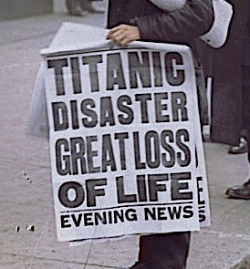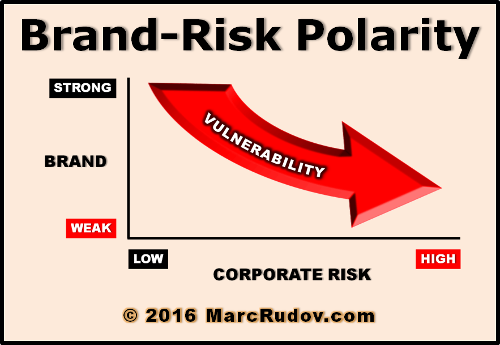 Passengers on the Titanic most certainly felt that their captain was running a tight ship. Everything around them likely seemed tidy and orderly.
Passengers on the Titanic most certainly felt that their captain was running a tight ship. Everything around them likely seemed tidy and orderly.
Imagine the gleaming gears, shiny pistons, and well-trained men stoking the boilers in its state-of-the art engine room.
A “tight ship,” as the Titanic tragedy revealed, is not necessarily pointed in the right direction, or moving at a judicious and sustainable speed, or run by a crew able to spot, avoid, and obliterate hazardous obstacles ahead.
The “unsinkable” Titanic fit this profile: eventually colliding with an iceberg, sinking, and killing 1503 passengers and crew.
Where’s Your Ship Headed?
Corporations are ships. Many of them quickly and efficiently reach the wrong destinations — mostly because they haven’t defined and articulated those destinations.
Your brand — the customer-validated value proposition — must set your corporate direction and purpose. NOT your product. NOT your technology. NOT cultural fads.
Without a strong brand, a clear direction, where’s your ship headed?
Many corporate captains, CEOs, do equate product (instead of brand) with purpose, forcing their enterprises to change direction and messaging frequently. IBM is a great example: it has shrunk for the past-16 consecutive quarters.
In 1983, Apple’s board hired John Sculley away from Pepsi, where he was CEO, to helm the flailing computer company. He was out of his depth. He tinkered plenty in the engine room but never established a strong brand. So, no employees understood the rationale for any of Sculley’s directives. Twenty-seven years later, in 2010, Sculley admitted that he had almost destroyed Apple.
Brand-Risk Polarity
Alas, by failing to create strong brands, and instead focusing on their engine rooms, CEOs burden their enterprises with substantial risks, rendering them vulnerable to destruction.
The discipline associated with minimizing corporate risk is called risk management. According to the International Organization for Standardization (ISO), risk is the effect of uncertainty on objectives. Is there a bigger cause of uncertainty than not having a clear direction?
Yet, those in risk management don’t speak about brands and branding. They should.
Examine the brand-risk polarity in the figure below. Brand and corporate risk are inversely related. This is logical: the more nebulous your direction, the more vulnerable your ship — and vice versa.
The absence of branding from risk-management discussions, strategies, and activities is inexcusable, is it not?
The Four Categories of Risk
There are many kinds of risk: operational, financial, economic, human, political, geographical, etc. I can distill the long list into four easy-to-remember categories:
- Internal
- External
- Strategic
- Tactical
The difference between external and internal is straightforward. Some risks, say financial, are hybrids. If a company is not committed to an action, and the CEO can easily and quickly cancel it, the action is tactical.
The customer-derived brand is external and strategic: it requires a long-term commitment. Remember this next time you observe a company change its message with every product introduction.
But, despite being conceived from external forces, your brand affects internal activities, both tactical and strategic: the products built, the people hired, and the processes implemented.
Also, based on the compounding effect of intertwining activities and their attached risks, the degree of overall corporate risk caused by a weak brand can be catastrophic.
Parting Advice to CEOs
Returning to the Titanic metaphor: If your direction is futile or, worse, perilous, it matters not how efficiently you run the engine room and kitchen.
If you’ve never before connected your brand’s strength to corporate risk, do so now.
I’ve told you, ad nauseam, that branding is your #1 priority. If said admonition has seemed implausible heretofore, it should strike you now as real and critical.
Ignore, deny, or dismiss branding: risk sinking your ship.
POSTSCRIPT #1: Bad News Keeps Piling Up for GoPro
© 2016 Marc H. Rudov. All Rights Reserved.
About the Author

Marc Rudov is a branding advisor to CEOs,
producer of MarcRudovTV, and author of four books


